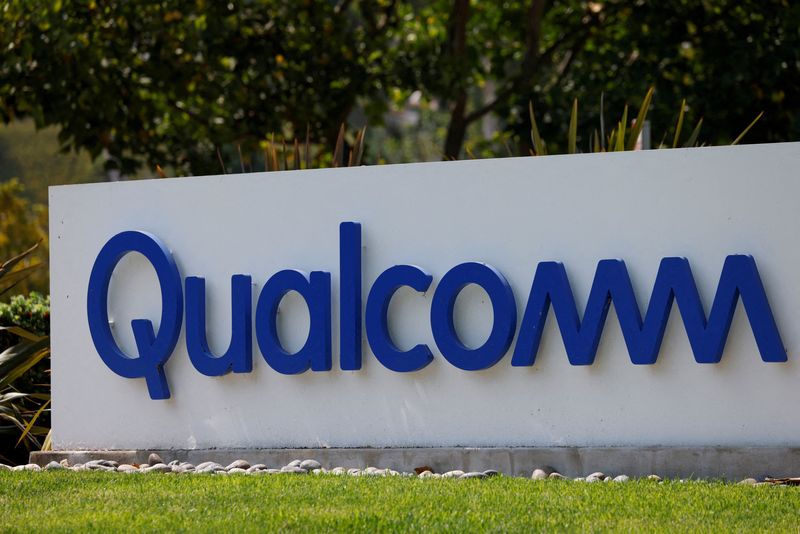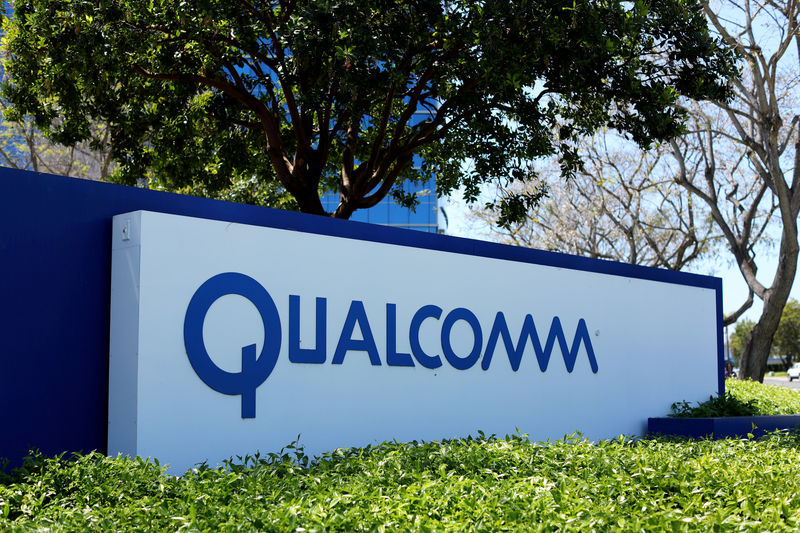
© Reuters. FILE PHOTO: A Qualcomm sign is shown outside one of the company’s many buildings in San Diego, California, U.S., September 17, 2020. REUTERS/Mike Blake/File Photo
By Jody Godoy
(Reuters) – A federal judge has ruled that shareholders suing chip maker Qualcomm (NASDAQ:) Inc for allegedly hiding anticompetitive sales and licensing practices may bring their claims as a class action.
The lawsuit filed in San Diego, California, alleges Qualcomm and its executives repeatedly described its businesses of selling chips and licensing its technology to other companies as separate, when in fact the company bundled them in a bid to stifle competition.
The investors leading the case claim the misrepresentations artificially inflated the price of Qualcomm shares between 2012 and 2017.
Qualcomm has called the allegations meritless.
U.S. District Judge Jinsook Ohta on Monday rejected Qualcomm’s argument that the sales practices were already publicly known.
Qualcomm’s responses to antitrust allegations by regulators revealed “far more detail” about the practices and the customers affected, she wrote.
The class covers investors who bought Qualcomm common stock between Feb. 1, 2012 and Jan. 20, 2017 and incurred losses.
Qualcomm paid the Korea Fair Trade Commission 1.03 trillion won ($912.34 million) in 2017 for what the regulator called unfair business practices in licensing and chip sales.
The San Diego-based company also faces a consumer lawsuit in California alleging its practices violated state law.
The case is Shah v. Qualcomm Incorporated et al., U.S. District Court, Southern District of California, No. 17-121







